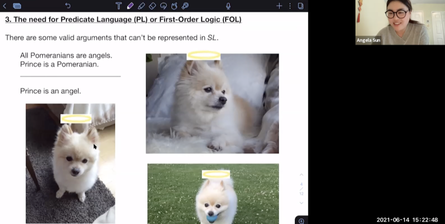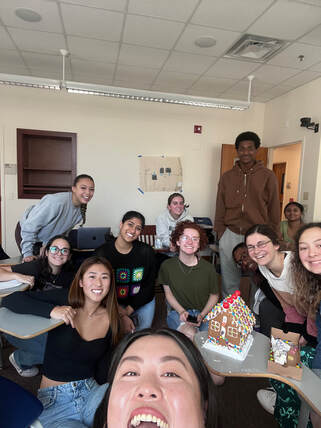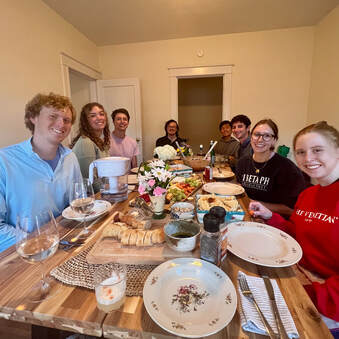Few things making me happier than teaching philosophy. Here is my teaching portfolio from Fall 2021, which contains my teaching statement, teaching interests, quantitative and qualitative student course evaluations, and sample syllabi.
Teaching at Washington & Lee University
Here are descriptions, syllabi, and sample materials for the courses I have taught as an Assistant Professor at Washington & Lee University:
- Seminar in Ethics and Value Theory: Love and Commitment (PHIL 396)
- Description: In this seminar, we will examine a series of questions about love and commitment. What is the source of the normativity of our commitments? Should we always prioritize our moral commitments over our personal ones? Is our partiality toward our loved ones morally justifiable? Why is heartbreak one of the worst pains a person can feel? Is our capacity to move on after heartbreak a strength, or does it suggest we're more fickle than we'd like to be? To answer these questions, we will draw from various philosophical traditions as well as from literature, television, and film.
- Syllabus (Fall 2023)
- Decision Theory (PHIL 371)
- Description: In this course, students will explore ways that rational decision-making both by individuals and by groups has been modeled in philosophy, political science, economics, and other social sciences. In addition to learning about the formal foundations of decision theory, students will be introduced to contemporary debates among philosophers working in decision theory.
- Syllabus (Winter 2023)
- Sample final exam with solutions
- Aesthetics (PHIL 264)
- Description: In this course, we will examine a series of philosophical questions about art. What is art? What makes art good or bad, and who decides? Can morally bad art be good art? Why care about art at all?
- Syllabus (Winter 2024)
- Philosophy of Race (PHIL 253)
- Description: In this course, students will consider a series of questions philosophers have addressed concerning race and racism. What is race? What does it mean to be oppressed? What is the relationship between racism and capitalism? What is the cognitive basis for harmful racial stereotypes? Why is hate speech harmful? Should it be allowed on college campuses? What is the best way to respond to racism? Throughout the course, special attention will be paid to how we ought to respond to racism as responsible citizens.
- Syllabus (Fall 2023)
- Introduction to Moral and Political Philosophy (PHIL 104)
- Description: This course provides an introduction to moral and political philosophy by exploring two vexing conflicts. First is the conflict between morality and individuality: what should we do when the right thing to do, morally speaking, is different than the right thing to do for us? Is it okay for us to pursue personal projects when we could do so much more good if we devoted our lives to promoting the welfare of others? Second is the conflict between moral responsibility and moral luck: how can we hold people responsible for their wrongdoings (and legally punish them) if the circumstances we are born into–and that make us who we are–are simply a matter of luck? Is the aim of the US criminal justice system to hold people responsible for their wrongdoings because they deserve it? Does it achieve that aim? In the process of exploring these conflicts, students will develop critical reading and writing skills as well as the ability to engage in productive, respectful discussion.
- Syllabus (Fall 2022)
Teaching at the University of Michgian
Here are the courses I taught and samples of materials I prepared as a Graduate Student Instructor (GSI) at the University of Michigan:
- Rational Choice Theory (PHIL 443) for Jim Joyce in Fall 2020 and Fall 2021
- Symbolic Logic (PHIL 303) for Jamie Tappenden in Winter 2020
- Logic midterm study guide
- After the University of Michigan moved courses online due to COVID-19, I began making videos covering material that I would have gone over in class with my students so they could watch them on their own time. Here's my YouTube channel.
- Groups and Choices (PHIL 444) for Brian Weatherson in Fall 2019
- Ethics (PHIL 361) for Dan Lowe in Winter 2019
- Law and Philosophy (PHIL 359) for Ishani Maitra in Fall 2018
Introduction to Philosophy Resources
I prepared some teaching resources for Maegan Fairchild's Fall 2020 PHIL 101 course at Michigan. These materials might be useful to anyone teaching an introductory philosophy course, or a course discussing personal identity, free and determinism, skepticism, and related topics.



